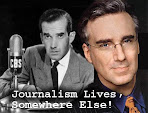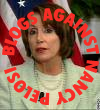(T)he New York Times should adopt a new slogan: “All the treason that’s fit to print.” - Deroy MurdockThe Terrorist Finance Tracking Program (TFTP) has, as far as we have been told (there likely is more) prevented numerous terrorist plots in the United States and abroad.
According to Deroy Murdock at National Review:
New York Police Commissioner Raymond Kelly on June 12 told New York’s City Council about 17 potential and actual Islamofascist strikes on the Big Apple.
And despite these thwarted attacks, the paper of record callously announced to the terrorists among us various details regarding the TFTP. Including:
the Belgian Society for Worldwide Interbank Financial Telecommunications, where the CIA selectively scrutinizes international bank transfers of terror suspects and their sponsors. Besides educating terrorists on U.S. surveillance techniques, the Times has painted a giant target on SWIFT’s offices.The main drive behind Murdocks article is the fact that the Time's address is within the radius of very prime terrorist target real estate. I wonder do they feel, as many nations mistakenly did, that if they avoid the ire of the extremists, they will be left unharmed? After all, they have in a large sense aided and abetted terrorist organizations with their reporting and liberal slant on the news.
My God, even John Murtha appealed to them to not print the article.
Most ironically, "the CIA, FBI, and NSA work tirelessly to connect the dots, which President Bush’s critics (including the Times) slammed Bush for not doing before 9/11. Now that Washington connects the dots, the Times disconnects them."
Bill Keller, the executive editor of the paper in response to the outcry, "noted that since the Sept. 11, 2001, terrorist attacks, the Bush administration has "embarked on a number of broad, secret programs aimed at combating terrorism, often without seeking new legal authority or submitting to the usual oversight."
And yesterday, the editorial board of the paper, which described that it's readers are fully aware of the large wall that separates the "editorial" and "news" sections of the paper, claimed "From our side of the news-opinion wall, the Swift story looks like part of an alarming pattern. Ever since Sept. 11, the Bush administration has taken the necessity of heightened vigilance against terrorism and turned it into a rationale for an extraordinarily powerful executive branch, exempt from the normal checks and balances of our system of government."
Yet oddly, in all these claims, Keller's and the editorial boards stance is strikingly similar. Could it be there are some windows in this "wall of separation of egos?"
Deroy Murdock continues:
Like its unilateral “declassification” of the NSA’s Terrorist Surveillance Program last December, the Times spilled the beans on TFTP even though this initiative is considered legal, congressional Democrats and Republicans were briefed on it, and no American claims to be its victim.So, ultimately both the News and Editorial belief of an "alarming pattern," that secret, which they reported was on the up and up.
I'm not 100% sure that I agree with Mr. Murdocks idea that the "Justice Department should prosecute the officials who leaked the TFTP story and the Times-niks who publicized it."
But I wholeheartedly embrace option two, which "we" the people can participate in (although I have consciously been doing this for some time now), "Average Americans should punish the Times’s transgressions. Boycotting this nationally distributed paper is the easiest way to sock this snotty rag right where it smarts: in the wallet. Watching their red ink rise might make Times personnel think twice before publishing more secrets from America’s anti-al Qaeda playbook."
tag: DeMediacrat tag: War on Terror tag: New York Times tag: Treason





















